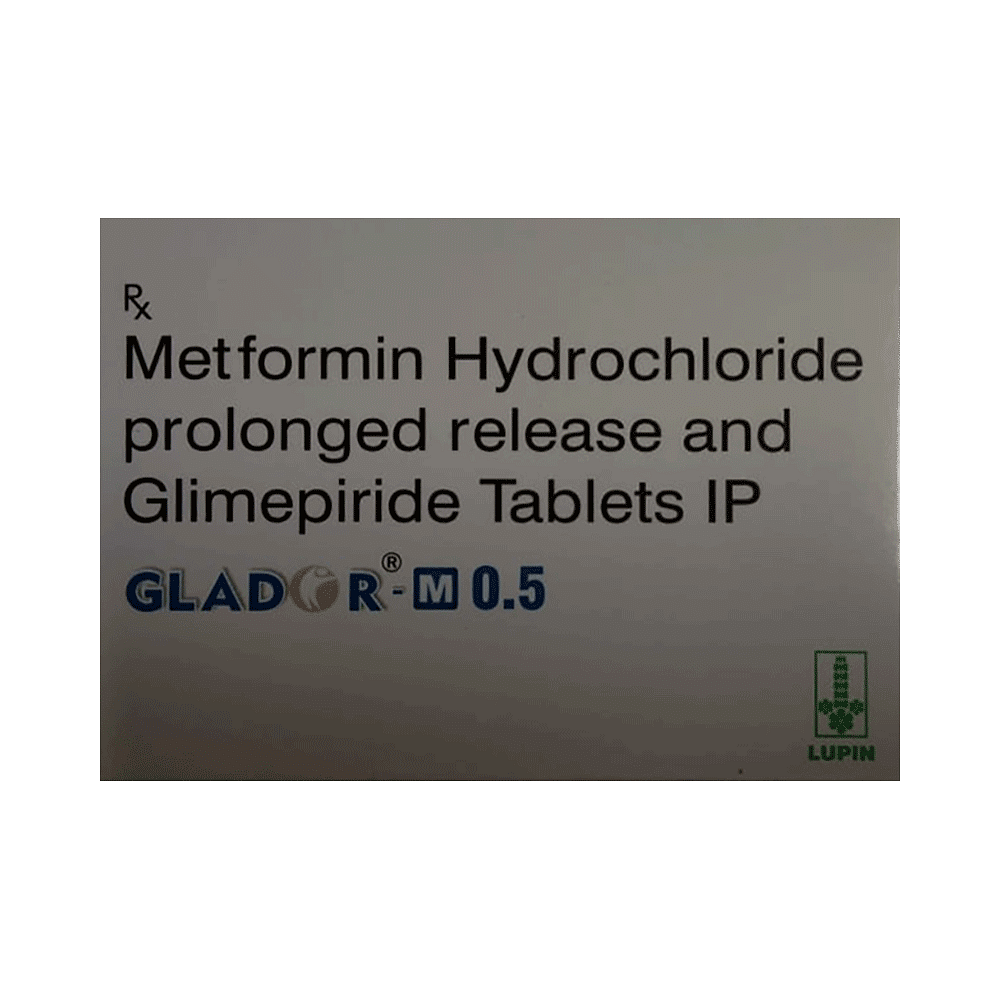
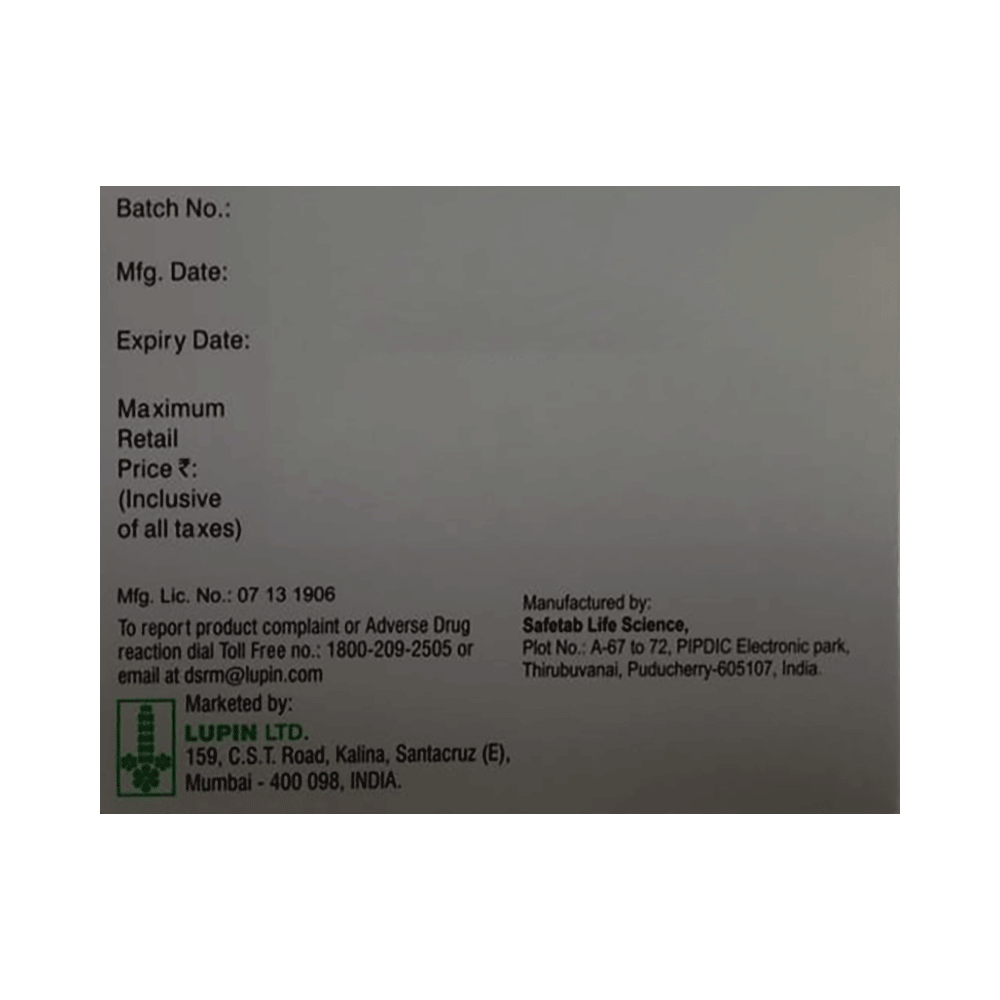
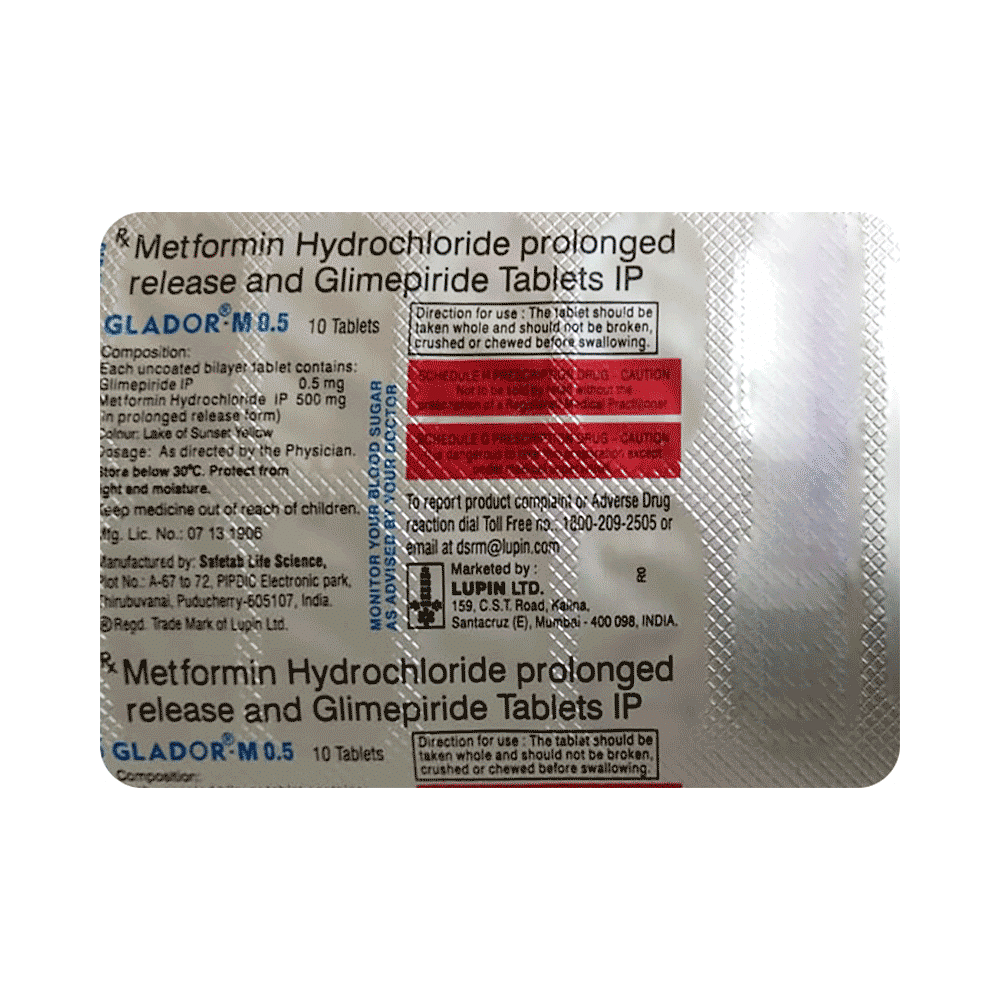
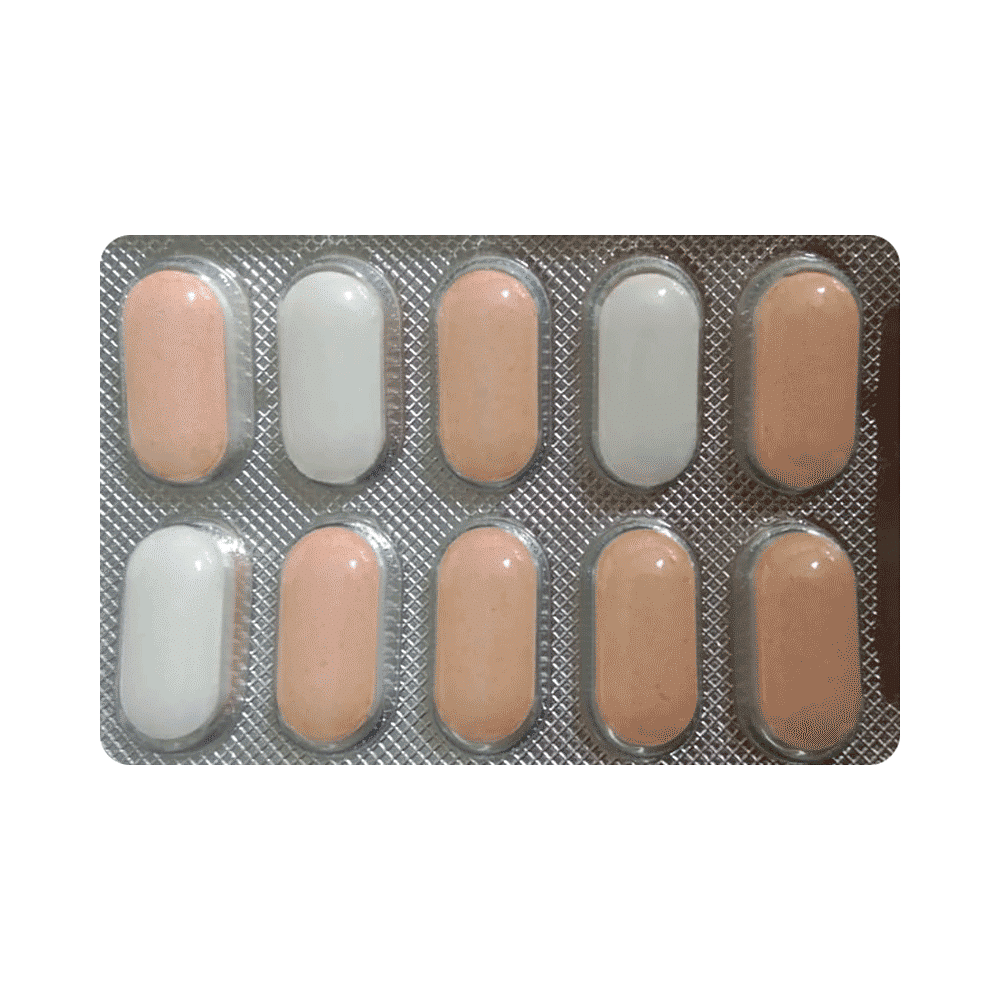
Glador-M 0.5 Tablet PR
Manufacturer
Lupin Ltd
Salt Composition
Glimepiride (0.5mg) + Metformin (500mg)
Key Information
Short Description
Glador-M 0.5 Tablet PR is a combination of two medicines used to treat type 2 diabetes mellitus in adults. It helps control blood sugar levels in people with diabetes.
Dosage Form
Tablet PR
Introduction
Glador-M 0.5 Tablet PR belongs to a category of medicines known as anti-diabetic drugs. It is a combination of two medicines used to treat type 2 diabetes mellitus in adults. It helps control blood sugar levels in people with diabetes.
Directions for Use
Use it as advised by your doctor or check the label for directions before use. Glador-M 0.5 Tablet PR is to be taken with food.
Safety Information
Side Effects
Inform your doctor about your diabetes treatment if you are due to have surgery under a general anesthetic. Tell your doctor immediately if you experience any deep or rapid breathing or if you have persistent nausea vomiting and stomach pain as Glador-M 0.5 Tablet PR may cause a rare but serious condition called lactic acidosis which is an excess of lactic acid in the blood.
Alcohol Warning
It is unsafe to consume alcohol with Glador-M 0.5 Tablet PR.
Breastfeeding Warning
Glador-M 0.5 Tablet PR is unsafe to use during breastfeeding. Data suggests that the drug may cause toxicity to the baby.
Pregnancy Warning
Glador-M 0.5 Tablet PR may be unsafe to use during pregnancy. Although there are limited studies in humans, animal studies have shown harmful effects on the developing baby. Your doctor will weigh the benefits and any potential risks before prescribing it to you. Please consult your doctor.
How it works
Glador-M 0.5 Tablet PR is a combination of two antidiabetic medicines: Glimepiride and Metformin..Glimepiride is a sulfonylurea which works by increasing the amount of insulin released by the pancreas in order to lower the blood glucose..Metformin is a biguanide which works by lowering glucose production in the liver.delaying glucose absorption from intestines and increasing the body's sensitivity to insulin.
Quick Tips
Take it with food to lower your chance of having an upset stomach. Monitor your blood sugar level regularly while you are taking this medicine. It can cause hypoglycemia (low blood sugar level) when used with other antidiabetic medicines alcohol or if you delay or miss a meal.
Related Medicines
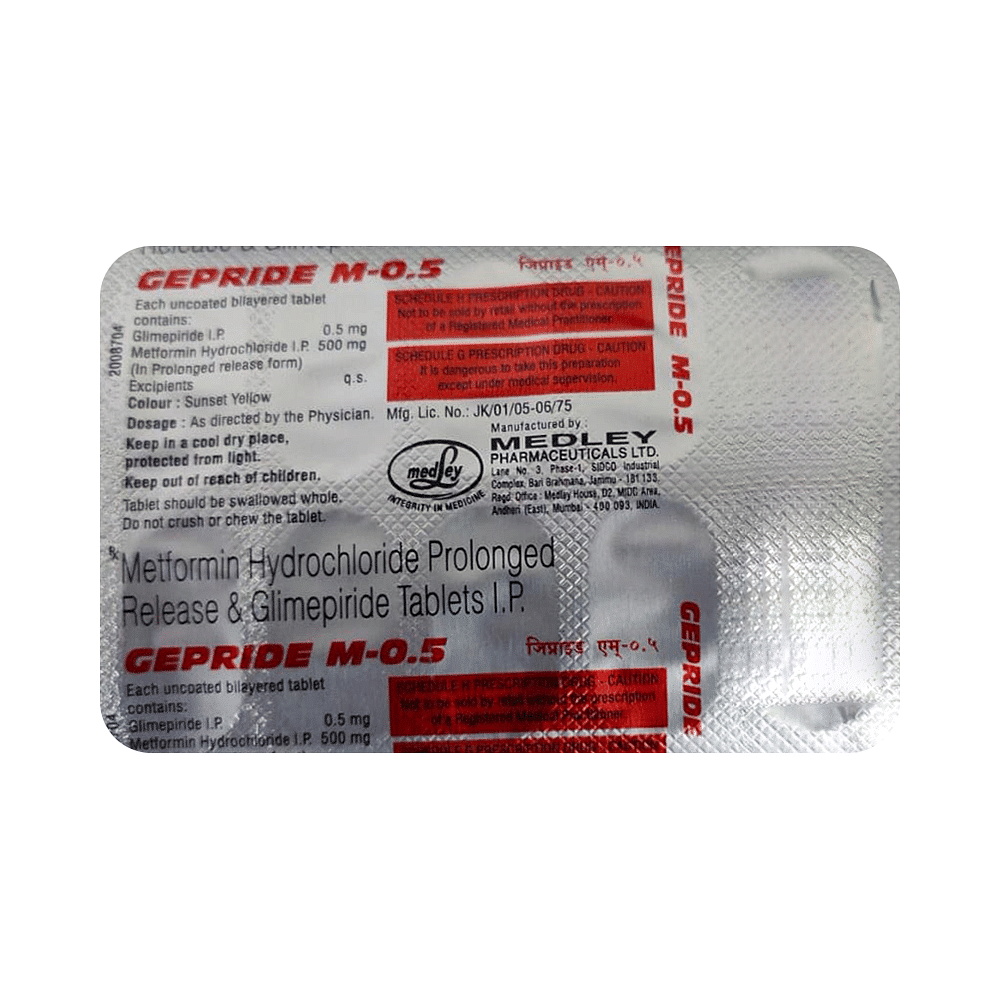
Gepride M-0.5 Tablet
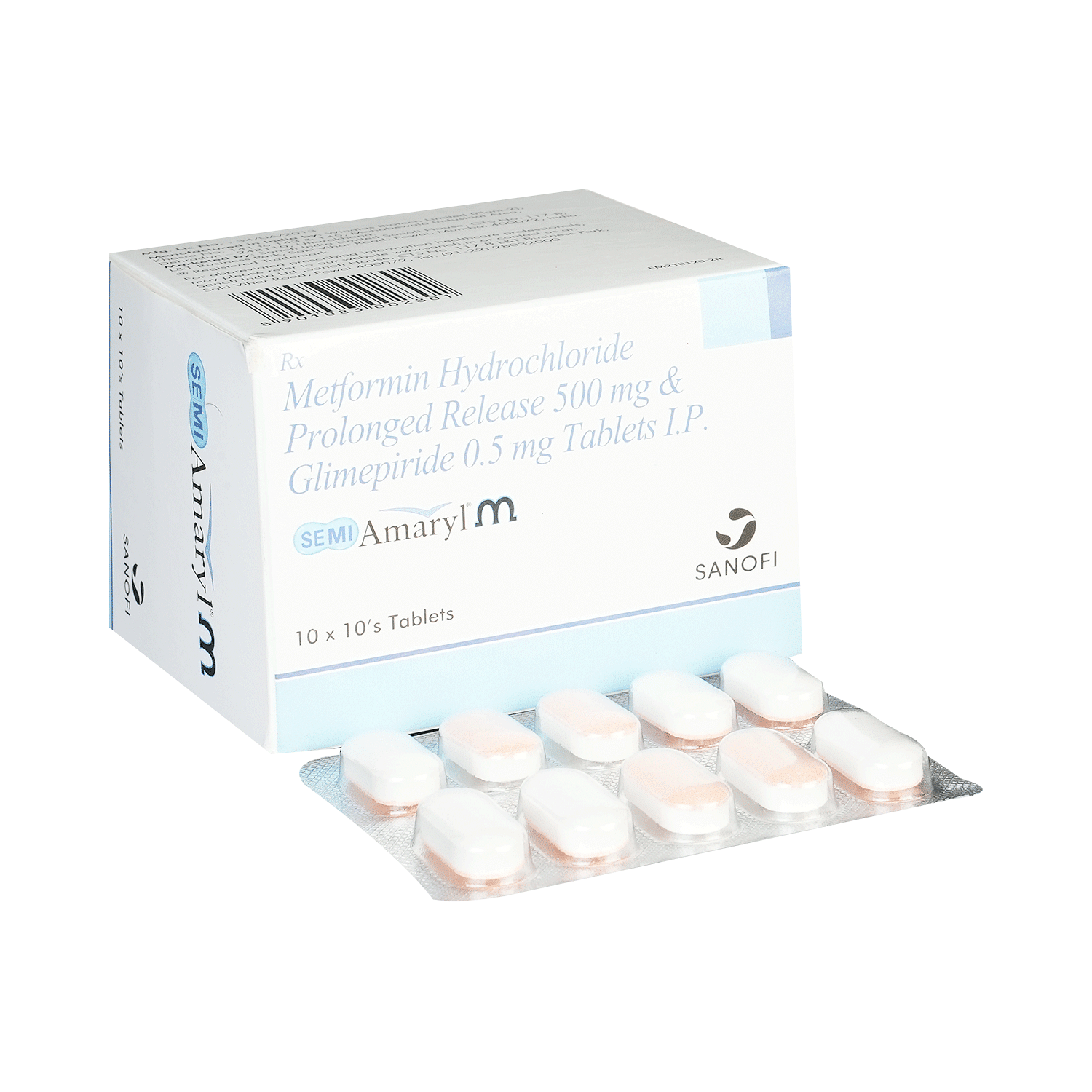
Semi Amaryl M Tablet
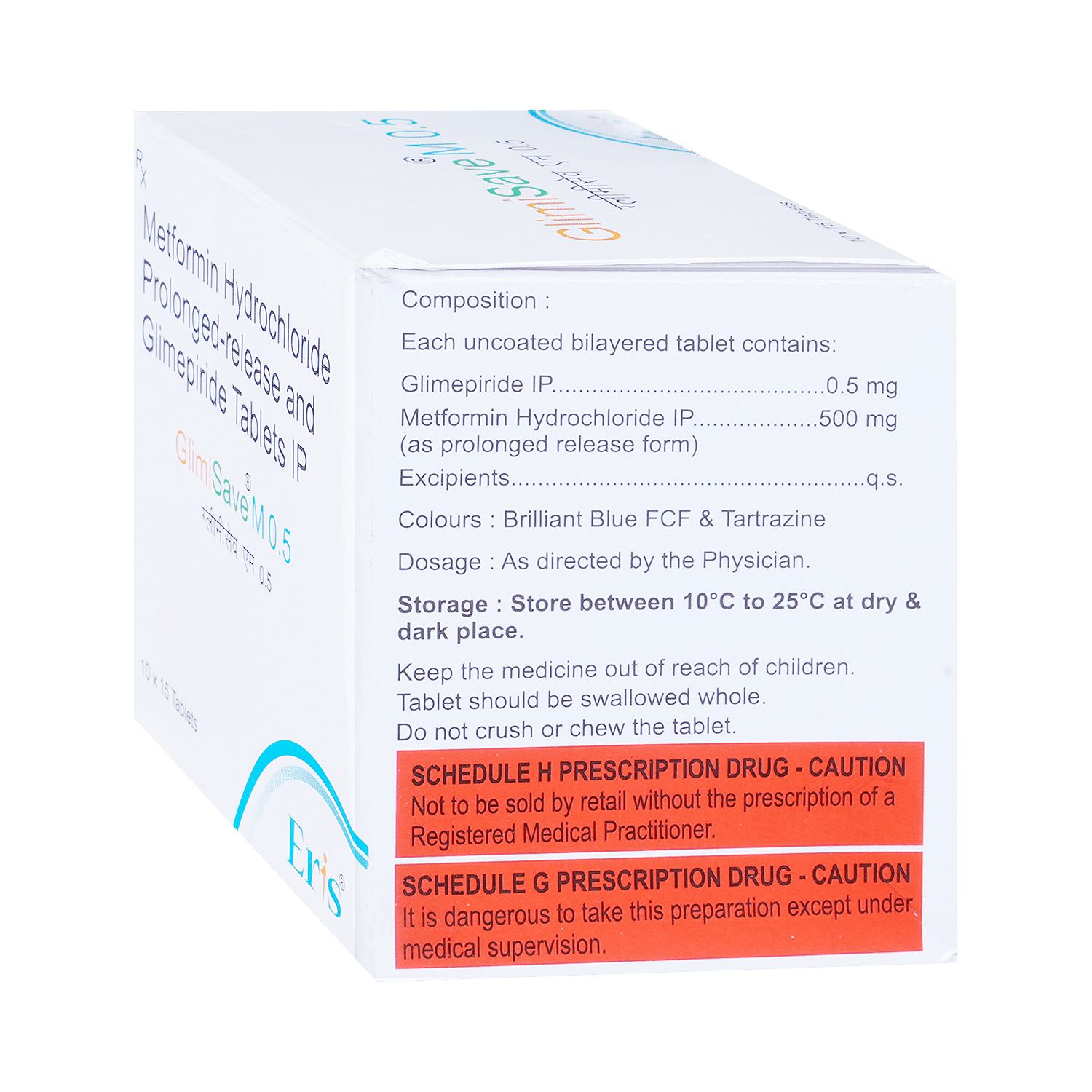
Glimisave M 0.5 Tablet
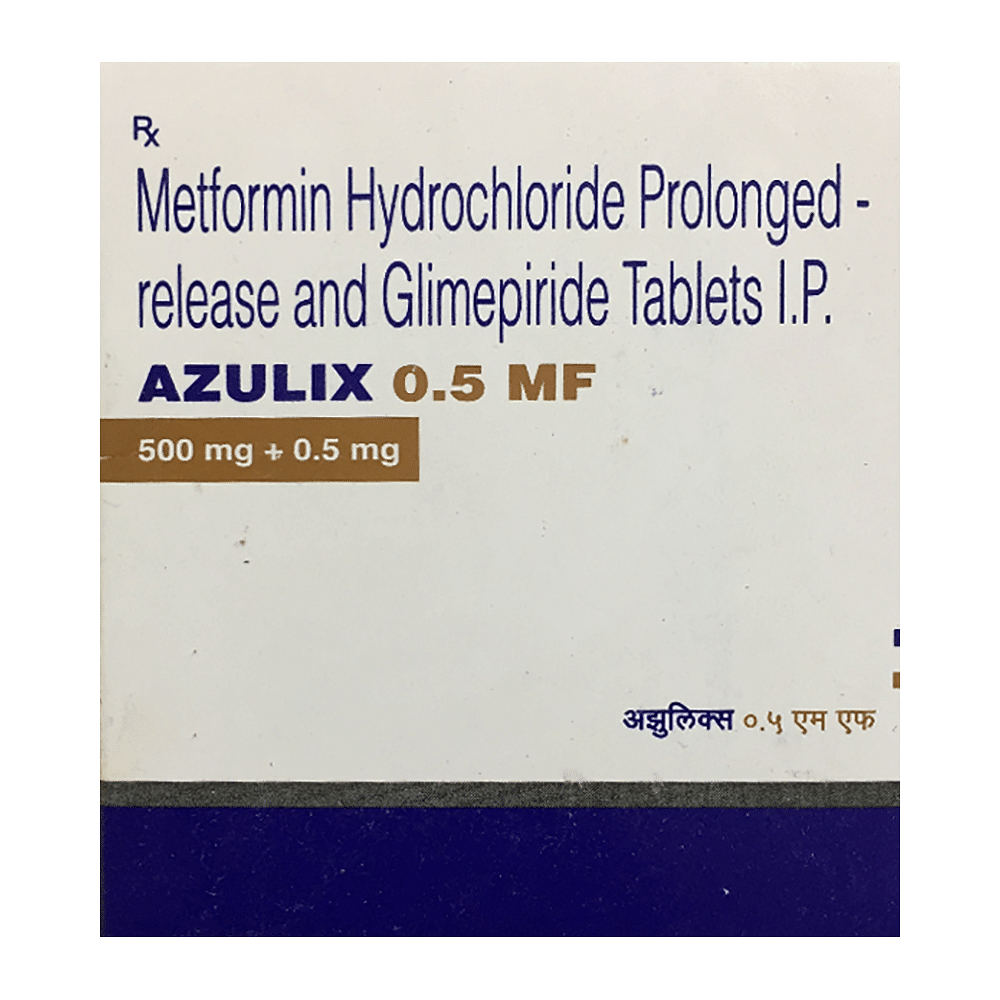
Azulix 0.5 MF Tablet PR

Diapride M 0.5 Tablet
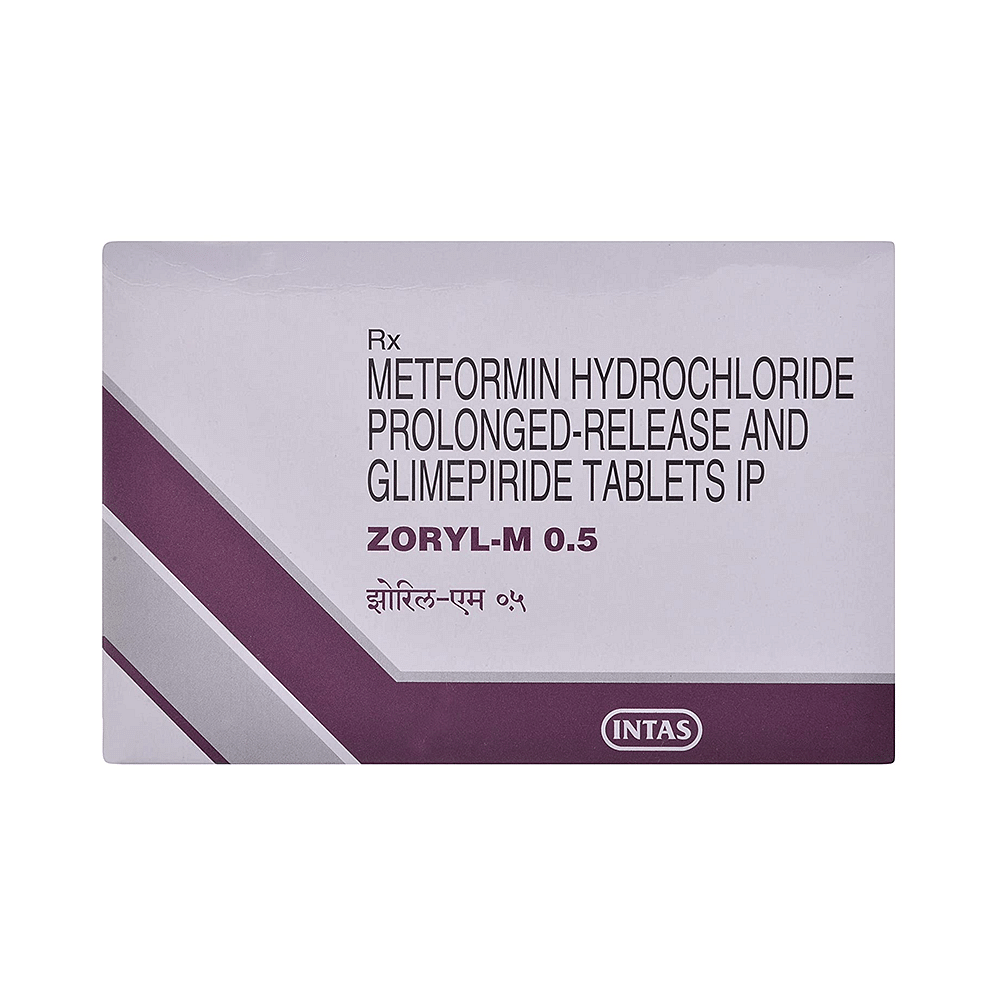
Zoryl M 0.5 Tablet PR
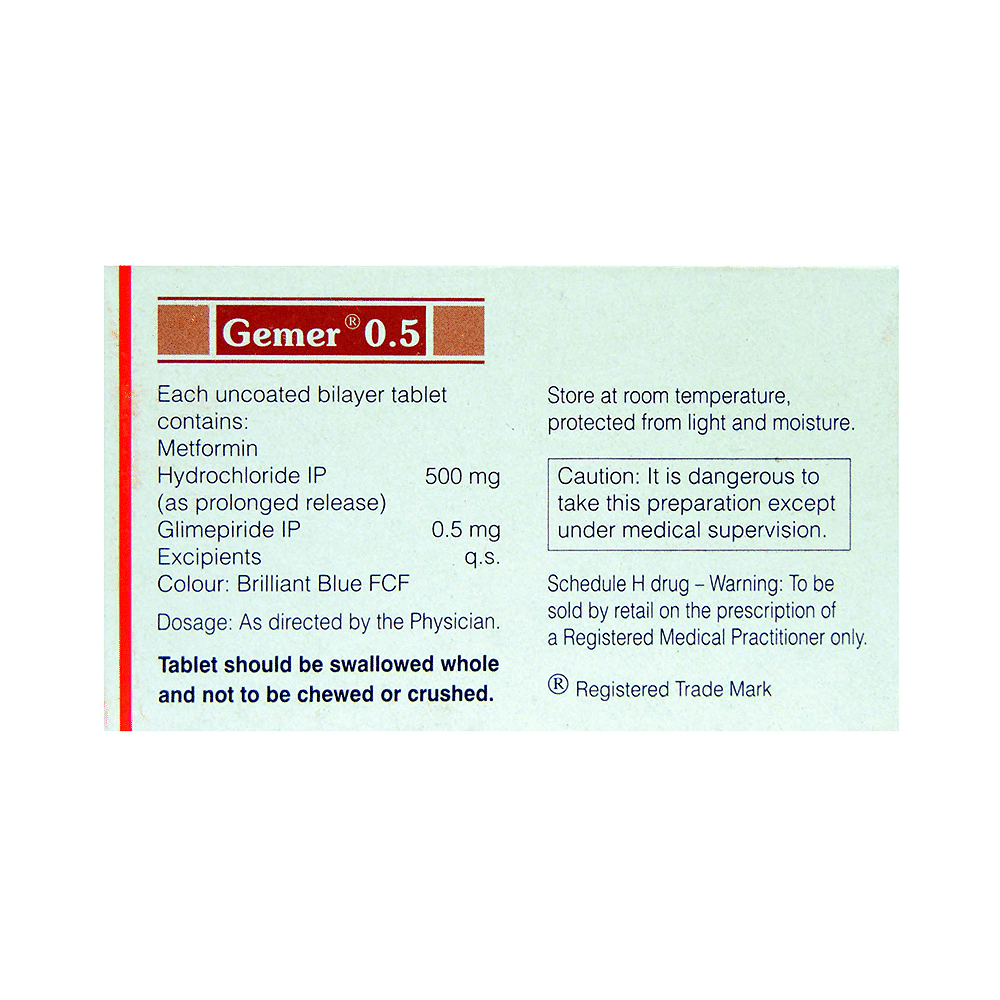
Gemer 0.5 Tablet
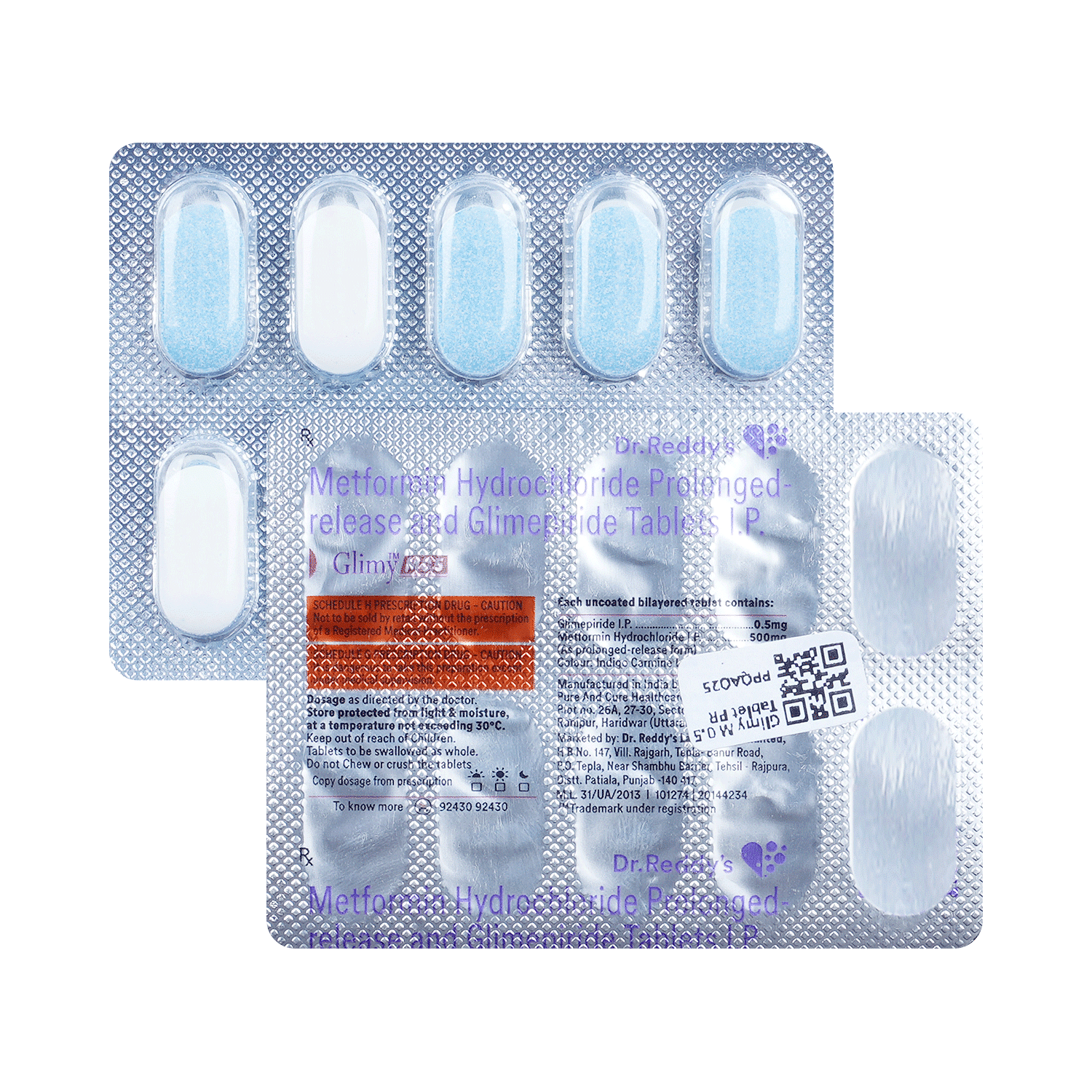
Glimy M 0.5 Tablet
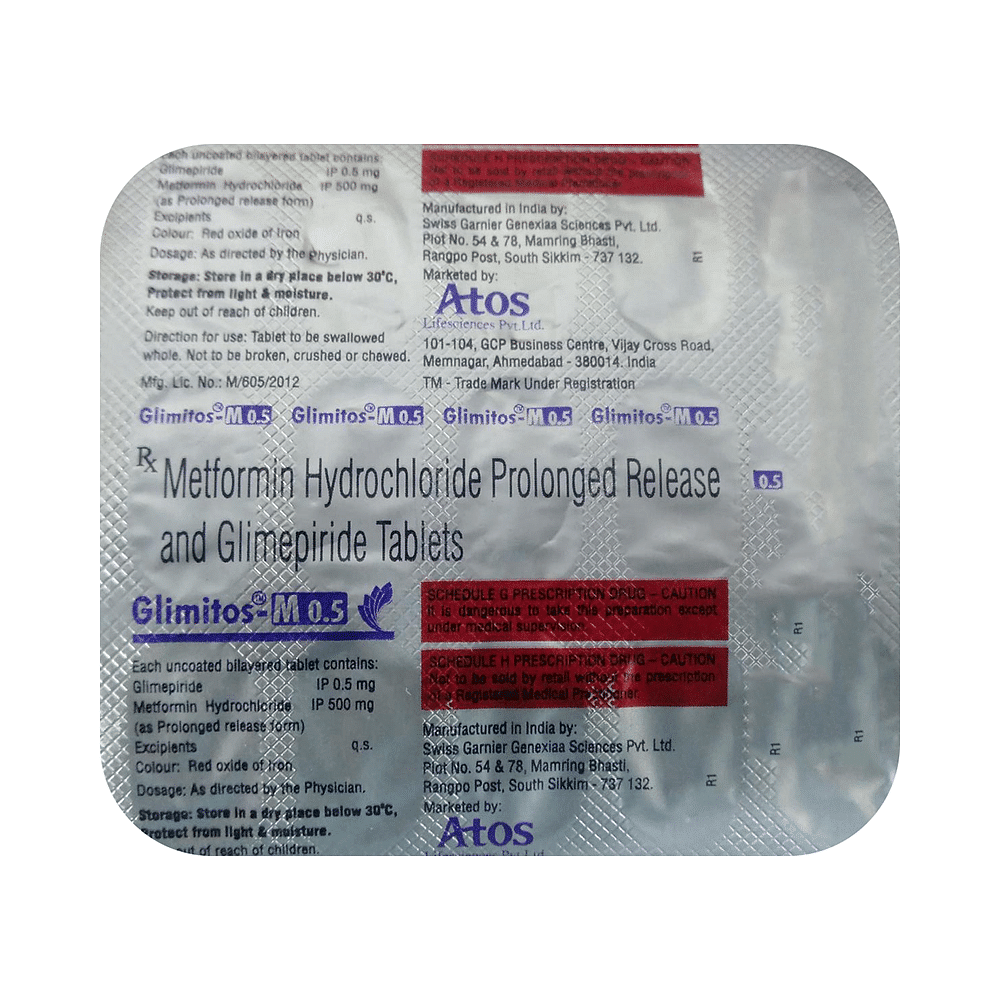
Glimitos M 0.5mg/500mg Tablet PR

Gluformin G 0.5 Tablet PR
Frequently asked questions
What are the recommended storage conditions for Glador-M 0.5 Tablet PR?
Store this medicine in its original container or package, and keep it tightly closed. Follow the instructions provided on the packaging label for safe storage. Dispose of unused medication responsibly, ensuring it is not accessible to pets, children, or other individuals.
Can the use of Glador-M 0.5 Tablet PR lead to lactic acidosis?
Yes, using Glador-M 0.5 Tablet PR may increase the risk of lactic acidosis. This is a medical emergency caused by a build-up of lactic acid in the blood. It's also known as MALA (Metformin-associated lactic acidosis) and is considered to be harmful for patients with pre-existing kidney problems, elderly individuals, or those who consume high amounts of alcohol.
What is Glador-M 0.5 Tablet PR?
Glador-M 0.5 Tablet PR contains a combination of two medications: Glimepiride and Metformin. This medication is prescribed for the management of type 2 diabetes mellitus (DM). It helps control blood glucose levels by working with dietary changes and regular exercise.
What are the possible side effects of Glador-M 0.5 Tablet PR?
Common side effects include hypoglycemia (low blood sugar), altered taste, nausea, stomach pain, diarrhea, and headache. It may also lead to more serious but rare side effects like lactic acidosis. Long-term use can increase the risk of Vitamin B12 deficiency.
Can the use of Glador-M 0.5 Tablet PR cause Vitamin B12 deficiency?
Yes, long-term use of Glador-M 0.5 Tablet PR may lead to a vitamin B12 deficiency. This is due to its interference with vitamin B12 absorption in the stomach. Untreated vitamin B12 deficiency can lead to anemia and nerve problems, resulting in tingling and numbness in hands and feet, weakness, urinary issues, cognitive changes (difficulty concentrating), and balance problems.
Can the use of Glador-M 0.5 Tablet PR cause hypoglycemia?
Yes, using Glador-M 0.5 Tablet PR may lead to hypoglycemia (low blood sugar levels). Symptoms include nausea, headache, irritability, hunger, sweating, dizziness, fast heart rate, and feeling anxious or shaky. It can occur more frequently with missing meals, consuming alcohol, over-exercising, taking other antidiabetic medications concurrently, or delays in meals.
Is it safe to take alcohol while I am also taking Glador-M 0.5 Tablet PR?
No, mixing alcohol with Glador-M 0.5 Tablet PR is not recommended. Alcohol can lower blood sugar levels and increase the risk of hypoglycemia. It may also potentially contribute to lactic acidosis.


